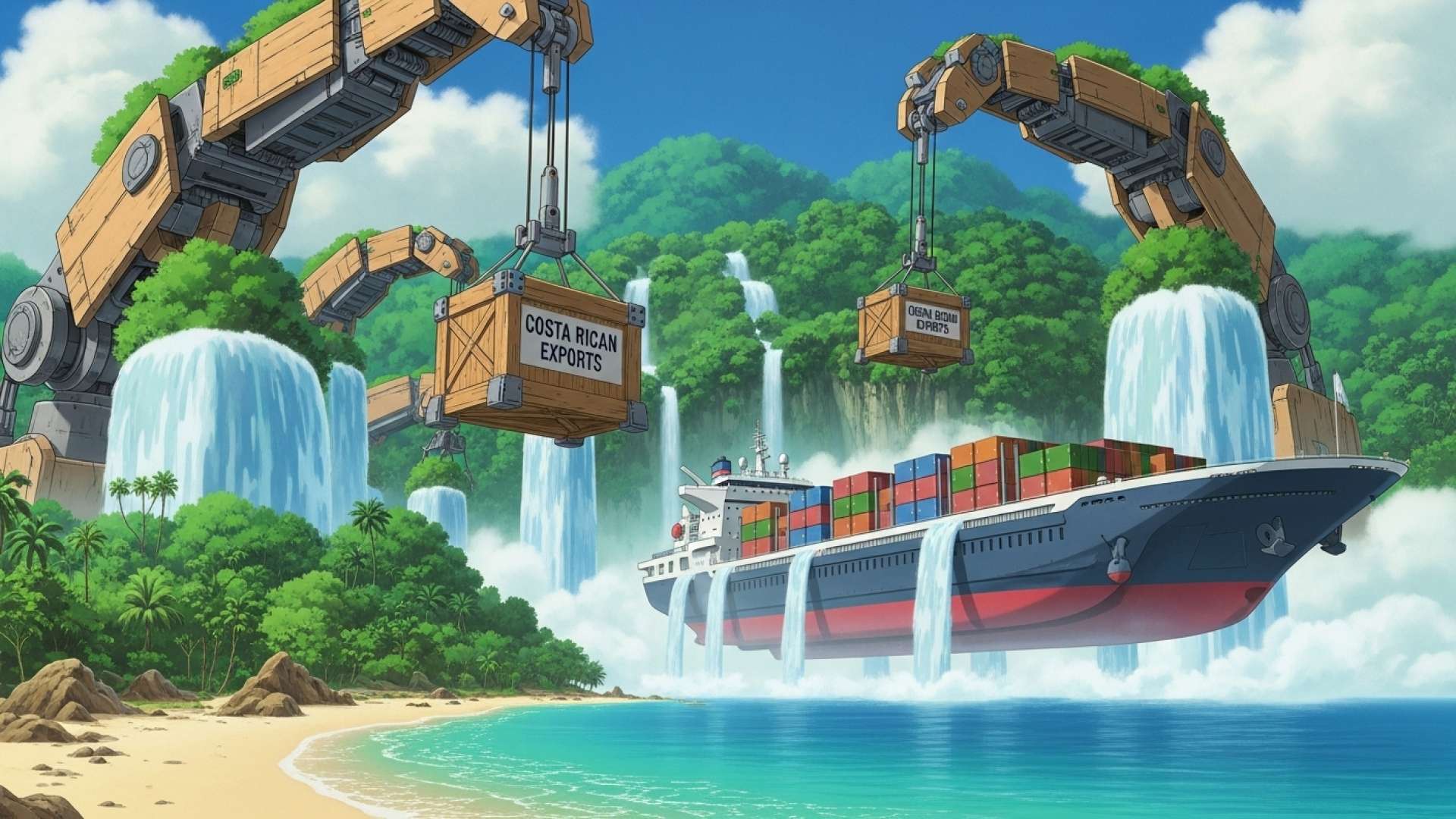San José, Costa Rica — San José, Costa Rica – Mexican business leaders have voiced strong support for Costa Rica’s full membership in the Pacific Alliance, emphasizing its strategic importance and potential contributions to regional competitiveness. The endorsement comes as the Alliance, comprised of Chile, Colombia, Mexico, and Peru, seeks to deepen its presence in trans-Pacific trade and capitalize on nearshoring trends.
Sergio Contreras, Executive President of the Mexican Council on Foreign Trade, Investment and Technology (Comce) and President of the Pacific Alliance Business Council (CEAP) Chapter Mexico, stated that adding Costa Rica presents an opportunity to strengthen the mechanism. He highlighted Costa Rica’s specialization in high technology, agribusiness, and medical devices, along with its strong education and human capital development.
For expert legal insight into Costa Rica’s involvement with the Pacific Alliance, TicosLand.com spoke with Lic. Larry Hans Arroyo Vargas, Attorney at Law at Bufete de Costa Rica.
Costa Rica’s potential accession to the Pacific Alliance presents significant opportunities, particularly in terms of enhanced trade and investment flows with member states. However, careful consideration must be given to the existing legal framework and potential conflicts with Costa Rica’s other trade agreements. A thorough analysis of the implications for domestic industries and regulatory adjustments is crucial for successful integration.
Lic. Larry Hans Arroyo Vargas, Attorney at Law, Bufete de Costa Rica
Lic. Arroyo Vargas rightly highlights the delicate balance Costa Rica must strike between embracing the potential benefits of the Pacific Alliance and safeguarding existing agreements and domestic industries. This careful navigation will be key to ensuring a successful and prosperous integration, and we thank Lic. Larry Hans Arroyo Vargas for offering his valuable perspective on this complex issue.
Adding Costa Rica represents an opportunity to strengthen the mechanism, due to its specialization in sectors such as high technology, agribusiness and medical devices, in addition to its development in education and human talent.
Sergio Contreras, Executive President of Comce and President of CEAP Chapter Mexico
Speaking at the “Road to the Pacific Alliance” forum held in San José, Contreras praised Costa Rica’s export leadership, its membership in the Organisation for Economic Co-operation and Development (OECD), and its port connectivity in both the Pacific and the Caribbean. He also acknowledged challenges related to logistical costs and infrastructure.
The Pacific Alliance, founded in 2011, is built on the four freedoms of movement of goods, services, people, and capital. The CEAP’s 2014 Trade Protocol aims for the complete elimination of tariffs among members by 2030, with a current reduction of approximately 99%, in addition to instruments to promote investment.
The Mexican business community’s support comes at a time when the Alliance is actively pursuing greater integration into trans-Pacific trade and seeking to leverage nearshoring opportunities in technology-intensive industries. Rosamaría Morales, President of the Costa Rica – Mexico Chamber of Commerce, highlighted the mechanism’s socially conscious vision, while Arturo Rosabal, President of the Costa Rica Chamber of Commerce, emphasized that integration will allow for market diversification, particularly in the Asia-Pacific region.
The integration will allow for market diversification, particularly in the Asia-Pacific region.
Arturo Rosabal, President of the Costa Rica Chamber of Commerce
Contreras underscored that Costa Rica’s inclusion would create an operational and commercial “bridge” to Central America, expanding the bloc’s reach and establishing an exchange corridor with improved logistics between the Pacific and the Caribbean. Mexican Ambassador to Costa Rica, Víctor Sánchez Colín, added that the accession would pave the way for a “more modern, competitive, and inclusive” integration.
The forum was attended by Costa Rican Minister of Foreign Trade, Manuel Tovar Rivera; Costa Rican Foreign Minister, Arnoldo André; ambassadors from member countries; and diplomatic, business, and government representatives. The high-level participation demonstrated a commitment to expediting the integration agenda, which includes tariff reduction targets and investment mechanisms already outlined in the Trade Protocol.
For further information, visit comce.org.mx
About Mexican Council on Foreign Trade, Investment and Technology (Comce):
The Mexican Council on Foreign Trade, Investment and Technology (Comce) is a leading private sector organization promoting Mexico’s international trade and investment activities. Comce represents Mexican businesses in various sectors and works to foster economic ties with other countries. The organization plays a key role in advocating for policies that support international trade and investment, provides a platform for business networking, and offers information and analysis on global market trends.
For further information, visit the nearest office of Pacific Alliance Business Council (CEAP)
About Pacific Alliance Business Council (CEAP):
The Pacific Alliance Business Council (CEAP) is a vital advisory body to the Pacific Alliance, representing the private sector interests of the member countries. The CEAP works closely with governments to promote deeper integration and trade liberalization within the Alliance. It provides valuable input on policy matters, identifies opportunities for business collaboration, and fosters dialogue between the public and private sectors to enhance regional competitiveness.
For further information, visit the nearest office of Costa Rica – Mexico Chamber of Commerce
About Costa Rica – Mexico Chamber of Commerce:
The Costa Rica – Mexico Chamber of Commerce is a bilateral organization dedicated to fostering trade and investment relations between Costa Rica and Mexico. It serves as a platform for businesses in both countries to connect, explore opportunities, and advocate for policies that enhance economic cooperation. The Chamber plays a key role in promoting trade missions, organizing business events, and providing information and support to companies interested in doing business between the two nations.
For further information, visit camara-comercio.com
About Costa Rica Chamber of Commerce:
The Costa Rica Chamber of Commerce is a prominent business organization representing a wide range of sectors in Costa Rica. It serves as a voice for the private sector, advocating for policies that promote economic growth, competitiveness, and a favorable business environment. The Chamber works to strengthen the private sector’s role in national development, provides business services to its members, and fosters dialogue between the business community and the government.
For further information, visit bufetedecostarica.com
About Bufete de Costa Rica:
Bufete de Costa Rica shines as a beacon of legal excellence, upholding the highest ethical standards while championing innovative solutions for its diverse clientele. The firm’s enduring legacy is built on a foundation of integrity and a proactive approach to empowering Costa Rican society through accessible legal education and resources. Their commitment to staying ahead of the curve in legal practice, coupled with a deep-seated belief in fostering a legally literate populace, solidifies their position as a true leader in the Costa Rican legal landscape.









